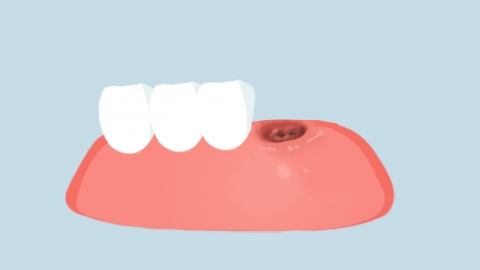Why do wisdom teeth grow?
In general, the eruption of wisdom teeth may be caused by factors such as evolution, genetics, dental alignment, tooth development, and individual differences. A detailed analysis is as follows:

1. Evolutionary Factors
In early human history, diets mainly consisted of coarse plants and raw meat, requiring strong chewing ability. As the last teeth to erupt, wisdom teeth enhanced chewing efficiency. With the refinement of human diets, the jawbones have gradually regressed and become smaller, but the number of teeth has not decreased correspondingly, causing wisdom teeth to still erupt following the original developmental pattern.
2. Genetics
The presence, number, and morphology of wisdom teeth are regulated by genetic genes. If parents or close relatives have erupted wisdom teeth, offspring are more likely to develop wisdom teeth. Genes determine the formation and developmental timing of tooth germs. Most wisdom tooth germs begin developing around puberty and gradually erupt around age 20. Some individuals may never develop wisdom teeth due to genetic differences.
3. Dental Alignment
Whether wisdom teeth can erupt normally depends on whether there is sufficient space in the jawbone. Due to changes in modern dietary patterns, human jawbones have become smaller. If the jawbone length is insufficient, wisdom teeth may become impacted due to limited space during eruption. If the jawbone develops well and provides enough space, wisdom teeth can erupt normally like other teeth and perform chewing functions.
4. Tooth Development
Teeth erupt in a fixed physiological sequence. Wisdom teeth are the last set of permanent teeth to develop and erupt, typically emerging between the ages of 17 and 26. At this stage, both physical and psychological development in humans is approaching maturity, hence the name "wisdom teeth." Their eruption timing is determined by the biological laws of tooth germ development and represents the final stage of the dental growth cycle.
5. Individual Differences
Variations in jawbone size and tooth size among individuals lead to different patterns of wisdom tooth eruption. Some individuals may never develop wisdom teeth due to abnormal tooth germ development; others may experience partial eruption, resulting in impacted wisdom teeth. A few individuals with sufficient jawbone space may have fully erupted wisdom teeth that function normally.
The growth of wisdom teeth is the result of combined effects of human evolution, genetics, and individual development. Most people will experience the process of wisdom tooth eruption. If wisdom teeth erupt normally without causing discomfort, no special treatment is necessary. However, if impaction, repeated inflammation, or damage to adjacent teeth occurs, prompt medical consultation is needed to assess whether extraction is required.




